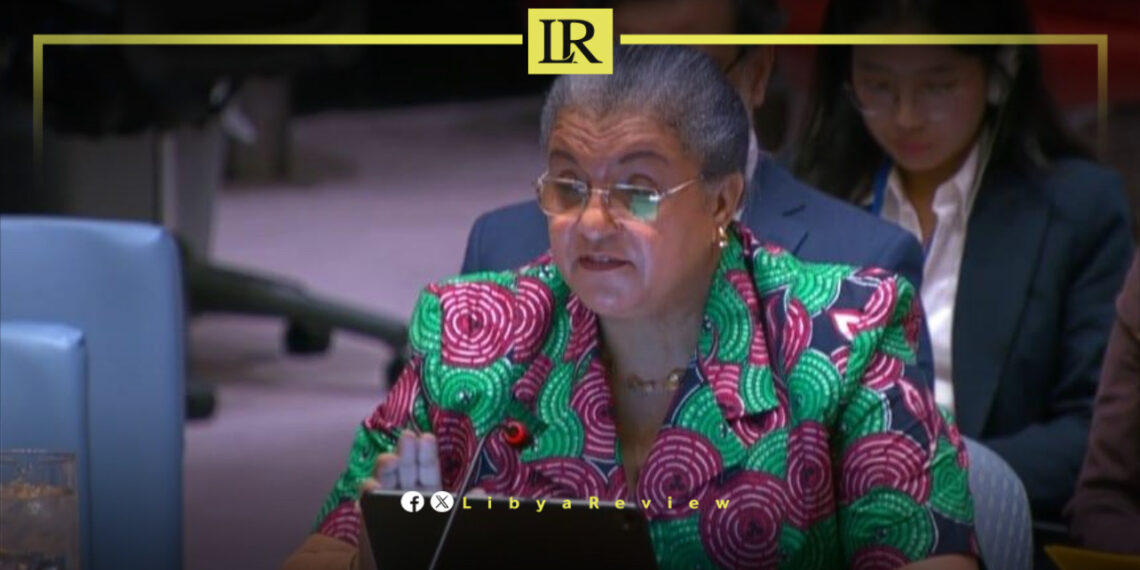The UN Special Representative to Libya, Hanna Serwaa Tetteh, has described the country’s security situation as fragile and volatile, warning that ongoing military build-ups could derail the 2020 ceasefire agreement.
In her first briefing to the UN Security Council on Thursday, Tetteh expressed deep concern over intensified military mobilisation in and around Tripoli, alongside military restructuring efforts by the General Command in southern Libya that are fuelling tensions. She cited recent deadly clashes in Qatrun as evidence of the escalating volatility.
Tetteh stressed that political will is essential to unify Libya’s fragmented military and security apparatuses, warning that without such unity, stability will remain elusive. She noted some progress with the establishment of joint border security centres in Tripoli and plans for similar facilities in Benghazi to promote information-sharing between eastern and western authorities.
Economic Instability and Budget Deadlock
On the economic front, Tetteh warned that the absence of a unified national budget risks triggering an economic collapse. The ongoing deadlock, she said, is exacerbating instability, accelerating currency depreciation, and fuelling inflation.
The UN mission is currently working with economic experts to identify key reforms and establish a unified budget framework aimed at achieving financial sustainability. Tetteh also underscored the importance of safeguarding oversight institutions, stressing that dismissals of regulatory heads must be in line with the 2015 Libyan Political Agreement signed in Skhirat.
She urged the Libyan government to promptly allocate funds for domestic oil imports and welcomed proposals for a comprehensive audit of state institutions to improve fiscal governance.
Elections and Political Stalemate
Tetteh criticised the interim government’s failure to address core challenges, noting that the Advisory Committee’s report on resolving electoral disputes is expected by the end of April. She reaffirmed the UN’s support for the committee’s work and pledged an inclusive approach to restarting the political process—one that ensures broad-based Libyan ownership and support.
Humanitarian Concerns and Rights Violations
The UN envoy raised alarms over persistent arbitrary detention and widespread human rights violations, particularly targeting women and migrants. She urged the House of Representatives to pass legislation addressing these abuses.
Tetteh cited the breakdown in governance as a key driver of human rights violations and growing hostility towards activists and humanitarian workers. She condemned arbitrary arrests, especially those targeting legal professionals and political dissenters.
She acknowledged the recent release of several detainees in both eastern and western Libya as a positive step, but stressed that hundreds remain unlawfully imprisoned. “All arbitrarily detained individuals must be released unconditionally,” she affirmed.
Tetteh also called for an end to the targeting of humanitarian organisations, noting that some, including licensed ones, have suspended operations due to mounting threats. The UN, she added, remains committed to working with Libyan stakeholders and the African Union to support a rights-based and inclusive reconciliation process.


